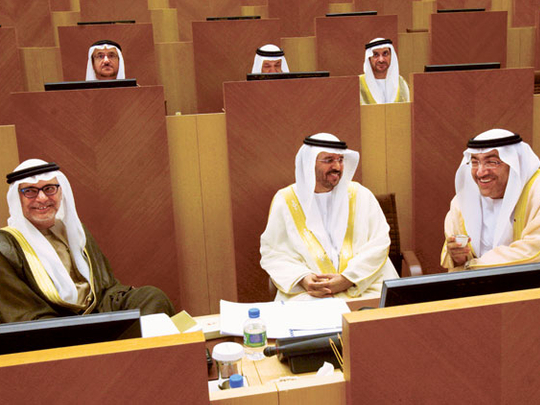
Abu Dhabi Members of the Federal National Council expressed concern at the shortage of male Emirati teachers at public schools.
Musabbah Saeed Al Kitbi, a representative from Sharjah, questioned the Ministry of Education's plans and programmes, which "led to the disastrous result of zero male Emirati students being admitted to the faculty of education".
"Thousands of questions should be raised about the educational faculty's failure to attract any male Emirati students and the reason why children drift away from their early ambitions to certain fields," Al Kitbi, who put a question to Humaid Mohammad Obaid Al Qutami, Minister of Education, said on the issue.
Al Kitbi said that it is extremely crucial to understand what factors cause children to drift away from their career goals.
Stressing that the Education Ministry has failed to make teaching an attractive career, Al Kitbi argued that understanding these factors alone will enable the ministry's counsellors, teachers and parents to offer proper guidance for students to make rational decisions about their vocational paths.
Bad hiring practices
The representative questioned the Education Ministry's goal to recruit 5,000 teachers until 2015, saying the ministry is suffering from several problems, ranging from failing to attract Emirati teachers to bad hiring practices and failing to tackle Emirati teachers' concerns.
"How can we convince a student to take teaching as a career when a school principal earns less than a student who dropped out of a school," he asked.
Al Kitbi suggested that the Ministry of Education sponsor skilled students who opt for teaching careers and offer financial and other incentives to educate and train them to become teachers.
Al Qutami admitted there was a distinct gap between the number of male and female Emirati teachers in public schools. "Across the school system, only 600 of 9,000 Emirati teachers are male, but we hope the ministry will reach a solution to this problem in the future."
Stressing that Emiratisation is a component of the ministry's reforms, Al Qutami said there is progress in the female ratio but a reduction in males for several reasons, like the trends in the job market as well as salaries and bonuses.
Statistics released by the Ministry of Education reveal that male Emirati teachers constitute only 10 per cent of the total number of teachers in government boys' schools nationwide.
Human resource and educational experts believe a key influencing factor is the availability of qualified foreign teaching resources at lower wages. Grade 12 students who are not adequately prepared for university education were also among the challenges to higher education.
Ground realities
The education minister said realities on the ground show how women account for the majority, whether in classroom or at work. He said a fairly large number of young Emirati males don't complete high school, many drop out of secondary school by grade 10, and several who graduate from high school choose not to go to college and don't apply to either federal or private universities.












